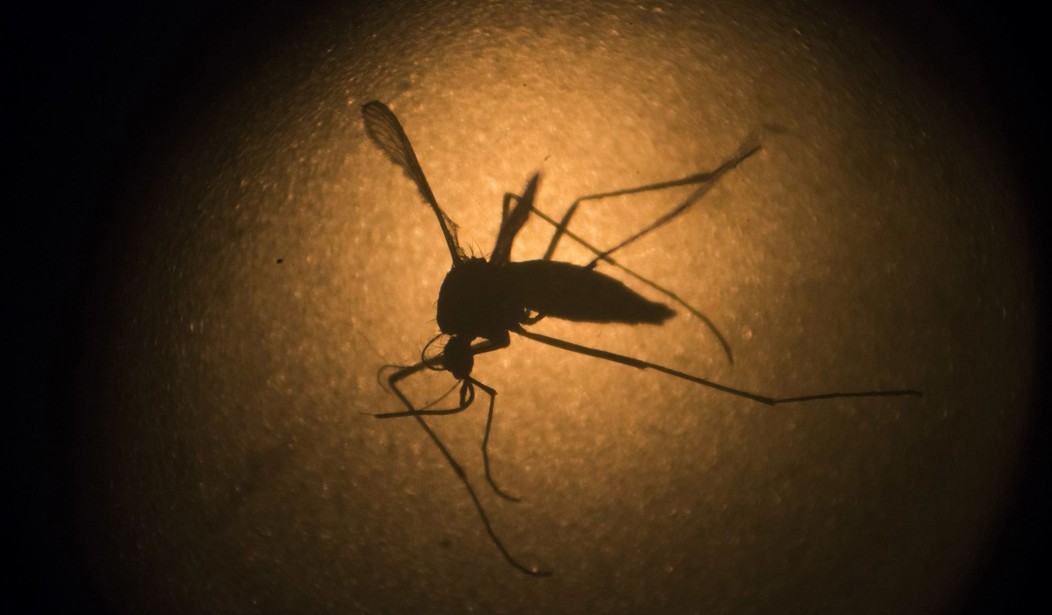The U.S. Environmental Protection Agency has approved a British biotech firm’s application to release 2.4 million genetically altered mosquitoes into the wild as an “experimental pesticide product.”
Via NBC News:
The experimental public health effort, which still requires final approval from state regulators, follows the 2021 release of 144,000 genetically modified mosquitoes in the Florida Keys by British biotech firm Oxitec.
Oxitec said its genetically modified male, and thus non-biting, mosquitoes “find and mate with invasive female Aedes aegypti mosquitoes, mediating a reduction of the target population as the female offspring of these encounters cannot survive,” thus reducing the overall population…
Oxitec’s mosquito release — which the EPA calls an “experimental pesticide product” — can take place in a 34,760-acre area across the two states between now and April 30, 2024, when the experiment ends.
Via Oxitec’s press release announcing FDA approval (emphasis added):
Oxitec, the leading developer of biological pest control solutions, is proud to announce the publication by the U.S. Environmental Protection Agency (EPA) of its approval to conduct pilot projects of Oxitec’s safe, non-biting, Aedes aegypti mosquitoes in California and Florida. Two pilot projects were approved, one with the Delta Mosquito and Vector Control District (Delta MVCD) in California and one with the Florida Keys Mosquito Control District (FKMCD) in Florida.
This approval is an extension of the Experimental Use Permit (EUP) granted in 2020 by the EPA for a pilot project in the Florida Keys, which was successfully carried out in 2021. Alongside its in-depth scientific evaluation process was a 30-day period for public comments. The EPA reviewed and responded to each public comment before issuing its approval…
Oxitec’s safe, sustainable and targeted biological pest control technology does not harm beneficial insects* like bees and butterflies and is proven to control the disease transmitting Aedes aegypti mosquito, which has invaded communities in Florida, California and other U.S. states. In California, since first being detected in 2013, this mosquito has rapidly spread to more than 20 counties throughout the state, increasing the risk of transmission of dengue, chikungunya, Zika, yellow fever and other diseases.
We’ve seen the fruits of “experimental” regulatory approval in the context of the emergency use authorizations granted to the manufacturers of the COVID-19 shots (potentially granted under fraudulent pretexts), and they’re not pretty.
Regarding the second claim — that Oxitec’s product “does not harm beneficial insects” — there is, of course, no way to affirmatively know the long-term effects of this product on local fauna because three years is a blip on the radar in the Public Health™ domain.
The most that could honestly be said — assuming robust, good-faith studies on the ecological impacts thus far have, in fact, been conducted and Oxitec hasn’t doctored the evidence — is that, at this stage, there appear to be no adverse impacts on the local ecology.










Join the conversation as a VIP Member